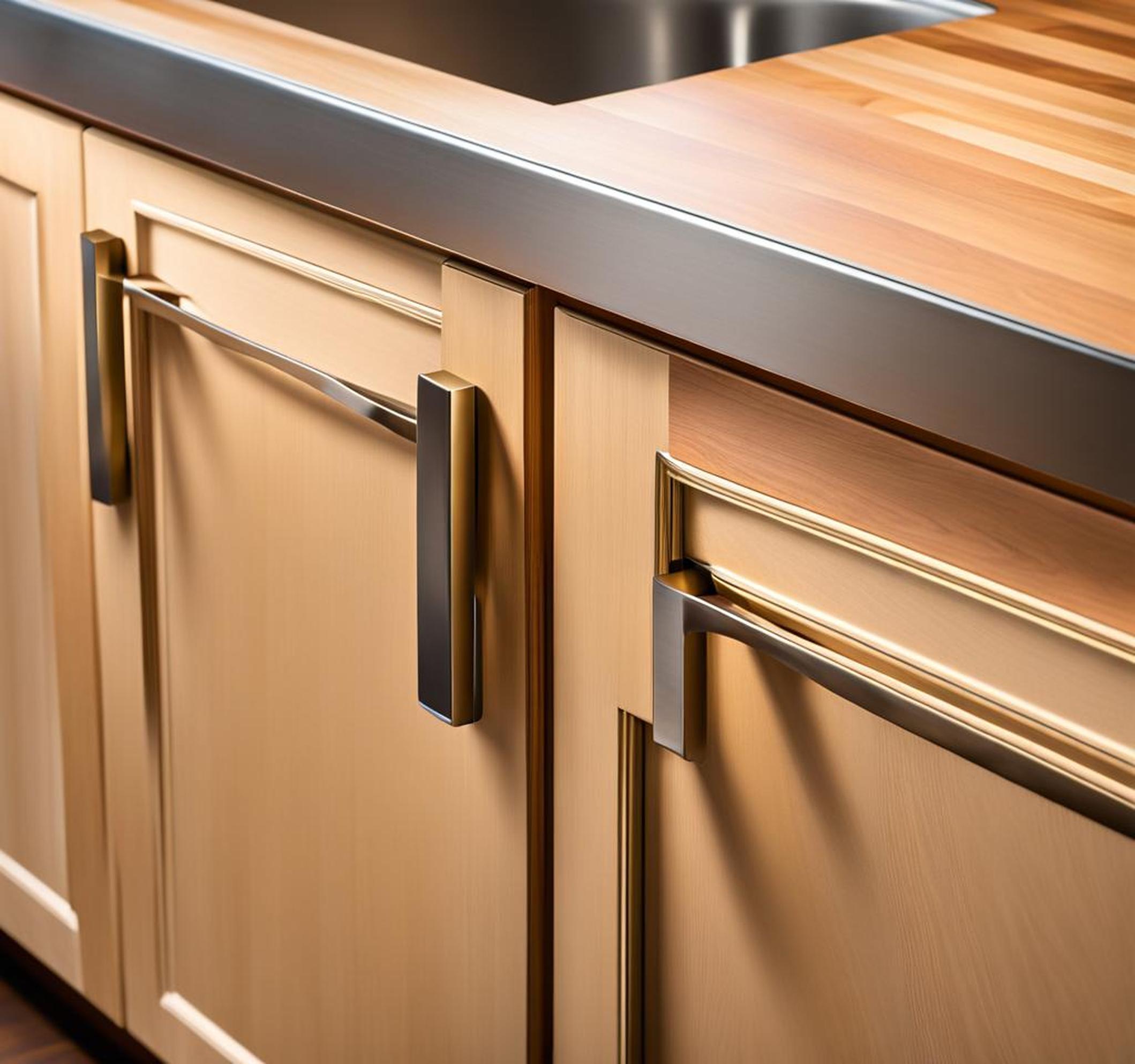Installing kitchen cabinet handles may seem simple, but their placement impacts both aesthetics and ease of use. As interior decorators, we know the tiny details make a dramatic difference. By following professional guidelines on kitchen cabinet handle placement, you can elevate your space from drab to fab.
You’ll learn location standards, handle types, and design tricks to make your kitchen look like a pro decorated it.

Cabinet Door Handles
The first rule of kitchen cabinet handle placement focuses on doors. Standard guidelines say install handles on the opposite side of hinges, 2-1/2″ to 3″ from the bottom corner for wall cabinets and 2-1/2″ to 3″ from the upper corner for base units. The reasoning aims for ergonomic use–keeping hardware accessible but out of the way.
Location Guidelines
Specifically, handles belong:
- Opposite hinges, 2-1/2″ to 3″ from bottom corner (wall cabinets)
- Opposite hinges, 2-1/2″ to 3″ from upper corner (base cabinets)
Orientation
Handles should install vertically, in an upright position parallel to cabinet doors. Horizontal installation risks awkward wrist movements during use.
Drawer Pulls
Drawers handles offer more placement flexibility than doors. Center drawer pulls on the front panel or install 2-1/2″ to 3″ down from the top edge. Extra wide drawers suit two centered pulls for symmetry.
Location Options
- Centered
- 2-1/2″ to 3″ down from upper corner
- Optional second centered pull for large drawers
Orientation
Pulls should have a horizontal orientation on drawers. The straight shape and side-to-side motion make horizontal alignment more comfortable.
Different Types of Handles
While most kitchens use simple knobs and pulls, other hardware options add personality.
Knobs
For a traditional look, choose round knob handles installed opposite cabinet hinges.
Pulls
Prefer a more contemporary style? Rectangular pulls suit modern drawer fronts.
Cup Pulls
Want hardware to make a statement? Try round cup pull handles placed vertically on doors.
Edge Pulls
Low profile edge pulls installed opposite hinges provide a sleek, integrated look.
Achieving Design Harmony
With so many kitchen cabinet handle styles available, use these professional tips to make them work in harmony.
Measurement
Precisely measure handle placement for symmetry. A guide or template helps get consistently aligned results.
Combining Styles
Feel free to mix knobs and pulls – just be sure measurement and installation follow standards.
Personalization
Custom looks may require breaking handle rules. Creatively placed handles can become a signature style.
Functionality Factors
Besides style, handle placement also impacts kitchen cabinet functionality.
Access and Clearance
Ensure handles sit flush and don’t collide with neighboring cabinets when open.
Ergonomics
Choosing the right handle shape/size enables easy grip–even for those with mobility challenges.
Expert Design Tricks
Take your kitchen from basic to beautiful by incorporating these special touches.
Second Set of Knobs
Extra wide drawers can accommodate a second centered knob for easier access.
Get creative with asymmetrical or unconventional handle placement to make a statement.
By understanding the methodology behind kitchen cabinet handle placement, you can install handles like a seasoned pro. Follow our guidelines for a kitchen that’s both stylish and highly functional.
